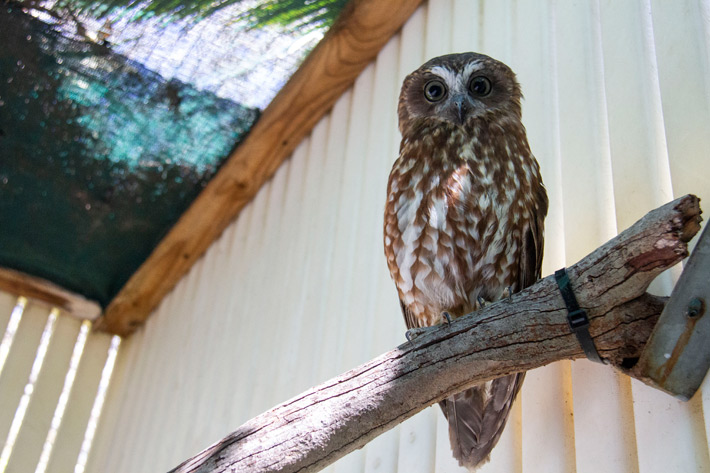Posted on 18th September 2019 by Media Relations
Now that spring is here many of our native animals are more active, which can lead to more interaction with humans and sadly more accidents. Taronga’s Wildlife Hospital is currently caring for a number of injured native birds, including a Boobook Owl that was found on Wakehurst Parkway near Seaforth.
“We often see a rise in the number of birds brought into the hospital at this time of year because they are raising their young and are under more pressure to find food and are therefore taking more risks,” says Libby Hall, manager of Taronga’s Wildlife Hospital.
When the Boobook arrived at the hospital vets noticed it had suffered trauma and an x-ray revealed that the bird’s pelvis was slightly rotated. “It’s possible it brushed a passing car,” says Libby.
The owl spent time in intensive care at the Wildlife Hospital to recover from its injuries and has now been moved to a rehab enclosure, where it is able to move about and fly around. “It’s feeding well and flying but it is a little unfit,” says Libby.
The process of rehabilitation starts slowly. Once a day the hospital’s nursing staff will encourage the Boobook to fly around the enclosure to stretch his wings. This will later be increased to several times a day as his fitness improves.
“We need to increase his fitness before he can be released so that he is as fit as a Boobook in the wild and can catch his own food,” says Libby.
In the wild Boobook’s feed on insects, small mammals and other small animal species. They mostly feed at night time but may also feed in the afternoon and mornings. This species can be identified by their dark chocolate-brown and rufous-brown plumage, which is spotted with white.
Taronga’s Wildlife Hospital treats around 1000 sick and injured native animals every year. This case is a good reminder to be careful on the road and keep an eye out for wildlife when driving.
